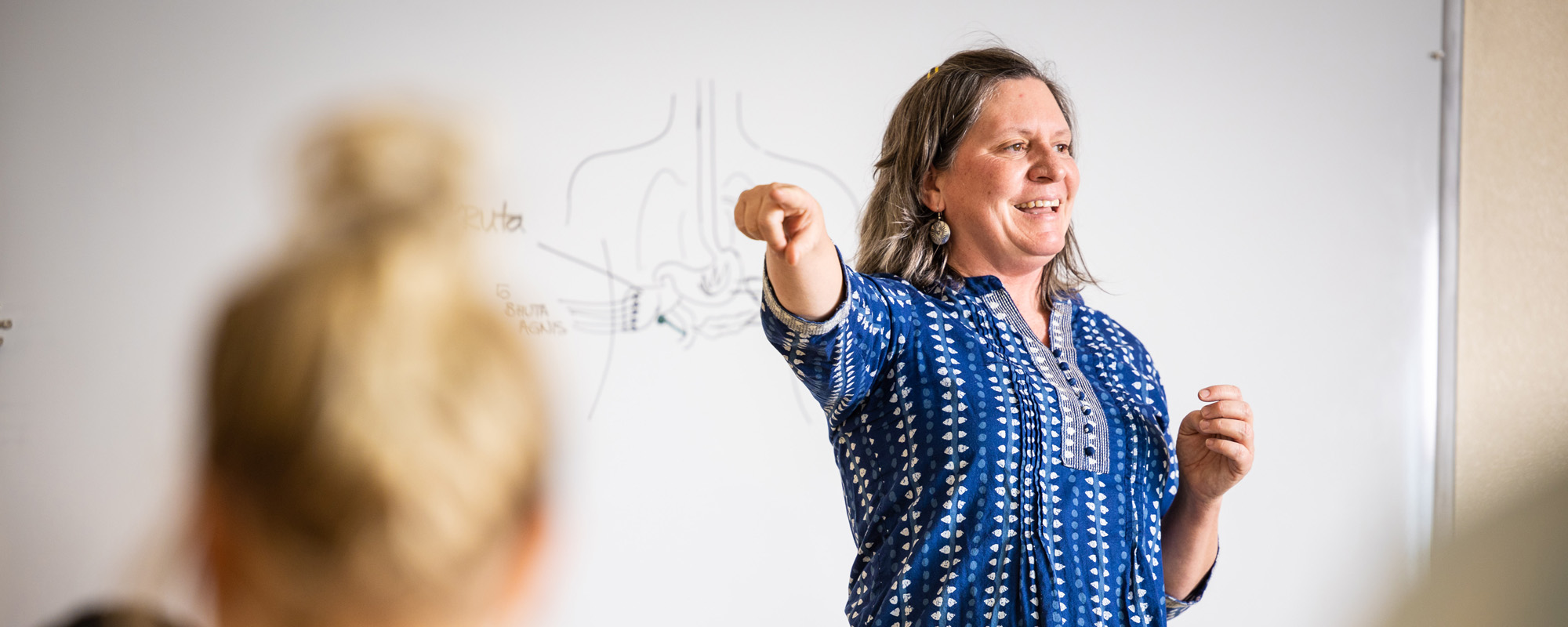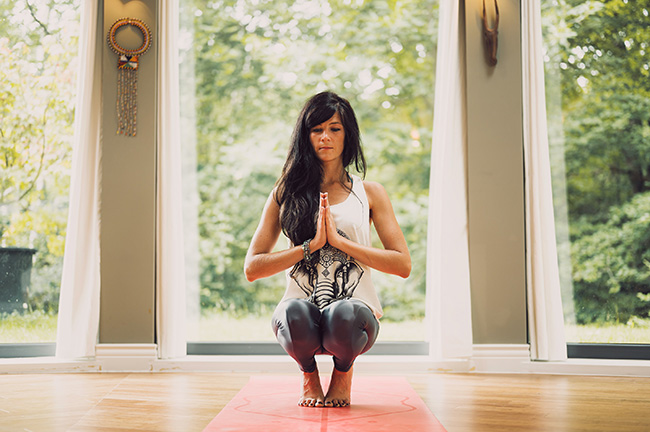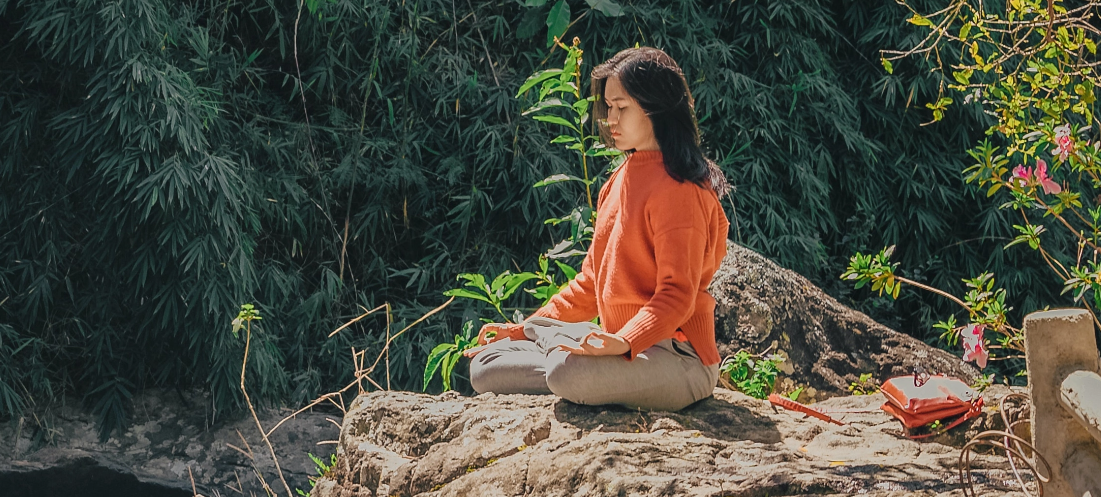

Ayurveda is a captivating ancient system of health and healing; providing detailed instructions relevant to this day on the best ways of living in harmony with nature and unfolding perfect health. As such, many of us find ourselves drawn to her intuitive and deeply rooted wisdom. However, with so many contemporary representatives, books and wonderful sources of information out there, learning Ayurveda and especially knowing where to start can be a daunting task! This simple guide to starting your Ayurvedic education has been put together by the faculty at the Ayurvedic Institute, the oldest and highly respected school of Ayurveda in the West, drawing upon their own experiences and knowledge. Its goal is to help those who feel called to learn Ayurveda, the divine science, to heal themselves, family or others.
The first step in your journey with Ayurveda is to get acquainted with the foundational concepts of the science; including the history and philosophy of Ayurveda, the five great elements and the theory of the three doshas. Luckily, the emphasis on simple qualities or gunas like hot, cold, smooth, rough makes it very easy to understand as a science! A great place to start is to read some articles online. Banyan Botanicals’ website is a fantastic resource for this purpose, as is the Ayurvedic Institute’s website which together offer hundreds of free articles, recipes and video content on Ayurveda. In addition to these resources, you will find videos of Dr. Vasant Lad’s ‘Journey Within’ series; exploring the practical wisdom of the meditation and philosophy traditions of Vedic times, and more, available to view for free on Ayurprana’s Youtube channel.
The next step on your journey to learn Ayurveda may be to dive a little deeper into these foundational themes by reading an introductory book. Some recommended beginner books by authors considered to be authorities in the field are Ayurveda: The Science of Self Healing by Vasant Lad and Ayurveda: Life, Health and Longevity by Robert Svoboda. Both can be purchased through the Ayurvedic Press.
As indicated by the title of Dr Lad’s first book, Ayurveda is, first and foremost, a science of self-healing. So, as you begin to learn Ayurvedic foundational concepts and principles, it is a great idea to begin to understand how the elements and doshas are behaving in your own body and mind. A good place to start is to arrange a meeting with an Ayurvedic Practitioner or student of Ayurveda, who can read your pulse and let you know what your constitution and present state of imbalance is. Alternatively, you can take the Dosha Quiz on Banyan Botanicals website!
As you continue to learn the principles of Ayurveda apply them to yourself and bring awareness to the results!
Integrating dinacarya (Ayurvedic daily routine) practices into your day such as scraping your tongue in the morning, starting the day with a cup of warm water and eating according to your constitution can be life-changing and help transform the theoretical knowledge of Ayurveda into life experience. Ayurveda is a dynamic system of healing that must be lived and embodied by the student in addition to being studied.
The new student of Ayurveda can bring awareness to how certain things make them feel; whether it’s drinking ice-cold water, sitting under the hot sun or being out in the blustering wind. Our experiences, as seen through the lens of the ancient Ayurvedic principles, are as much a learning tool as any book.
Many, if not all students of Ayurveda begin by working on themselves in this way to anchor the teachings making them all the more rooted and powerful! Bringing yourself closer to balance by employing Ayurveda’s ‘like-increases-like’ philosophy will also help to prepare you for the challenge of more in-depth study of Ayurveda if you wish to progress to a certification level, as well as to properly guide clients from a place of rootedness and health.
For many students beginning to learn Ayurveda in the ways discussed above, a call is felt to use this language of understanding and healing the world to serve others. If you find yourself in this camp, the next step is to find an Ayurveda learning course that suits you. You may want to start by attending some lectures, workshops and immersions to get a feel for the different teachers and lineages available. Nowadays, both in-person and online options are widely available. Ayurprana, the continuing education branch of the Ayurvedic Institute, offers dozens of online courses ranging from 2 hour long lectures to 6 week immersions on many different topics within the subjects of Ayurveda and Yoga. Examples of focus include women’s health, Ayurvedic nutrition and Pranayama. For in-person offerings, explore your local area.
At this stage, it can be worth investing in the Textbooks of Ayurveda series by Vasant Lad, BAMS, MA&Sc, which are used in many Ayurveda certification courses across the world as well as our own.
If you are based in the US and decide that you want to begin a formal study program to become a certified Ayurvedic Health Coach, Ayurvedic Practitioner or Ayurvedic Doctor, please visit this article on What is the Most Effective Way to Study Ayurveda in the US? for more information on accreditation, time commitments and requirements of study to learn Ayurveda in this way.
The traditional way to learn Ayurveda is from one Guru (teacher), by living and learning in close proximity with that teacher. The Guru-Shishya (teacher-student) relationship is deemed to be sacred, and therefore it is important to choose your teacher wisely. As already discussed, there are many teachers of Ayurveda in the world today, and each one will have their own lineage and teaching style, so there will come a time where each new student of Ayurveda will have to choose who to call their teacher.
Deciding to study Ayurveda requires a deeper commitment than other modern pathways of study. It is, in addition to a course of study, a lifestyle and a spiritual practice or sadhana. Studying Ayurveda is bound to transform you and your life, enable you to reach states of improved health, and even impact your relationships positively. Ultimately, in order to practice Ayurveda effectively with clients it is important that those learnings be rooted in personal experience.
There may be different considerations here; what suits your lifestyle and availability as well as preference in terms of lineage and style. Some Ayurveda programs are part time, some full time, in-person or even online. There are reputable programs all over the US, Europe, and in India. Choose one that fits your life requirements but also one that you deeply resonate with.
Your teacher or teachers will guide you through the main classical texts of Ayurveda (including Caraka, Sushruta and Vagbhata) on which all Ayurvedic knowledge is based. Some courses will include the study of Sanskrit and recital of sutras from these texts, which is the way these texts and principles would have been learned by students of Ayurveda in India for hundreds of years.
Study of Ayurvedic nutrition (ahara), lifestyle practices (vihara) and anatomy and physiology will be included alongside the principles of Ayurveda and study of diagnostic skills like assessment of the tongue, face and pulse. All good courses will include a degree of clinical practice to allow the student to get used to and feel comfortable with working with clients from all kinds of backgrounds and health concerns. At the practitioner level, studies of Ayurvedic herbology enable the student to work with formulating herbs specifically for the client’s concerns. Students will also gain experience in the manual therapeutics branch of Ayurveda.

To learn more about the Ayurvedic Institute’s programs, follow this link. For those looking to learn Ayurveda online, you can explore the Ayurvedic Institute online learning options which are available for all three levels of accreditation.
Whether you decide to start your journey to learn Ayurveda by reading an article, or by diving straight into a full time program, know that this is truly a blessed science that has the power to change your life and the lives of those around you for the better.
May your explorations in Ayurveda be blessed by the countless gifts of Ayurvidya (the Goddess of Ayurveda), and may it bring you closer to the peace of your Self!

The spiritual journey starts here

Beatrice joined the Ayurvedic Studies program with a background in Fine Art and Western Herbal Medicine, driven by a desire to find truly holistic modalities to support healing. She is an Ayurvedic Practitioner with AyurWellness and part of the Ayurvedic Institute faculty where she currently teaches Ayuryoga and Marma therapy.
Get regular updates from The Ayurvedic Institute, with great bonuses, free material, and discounts!
Contact